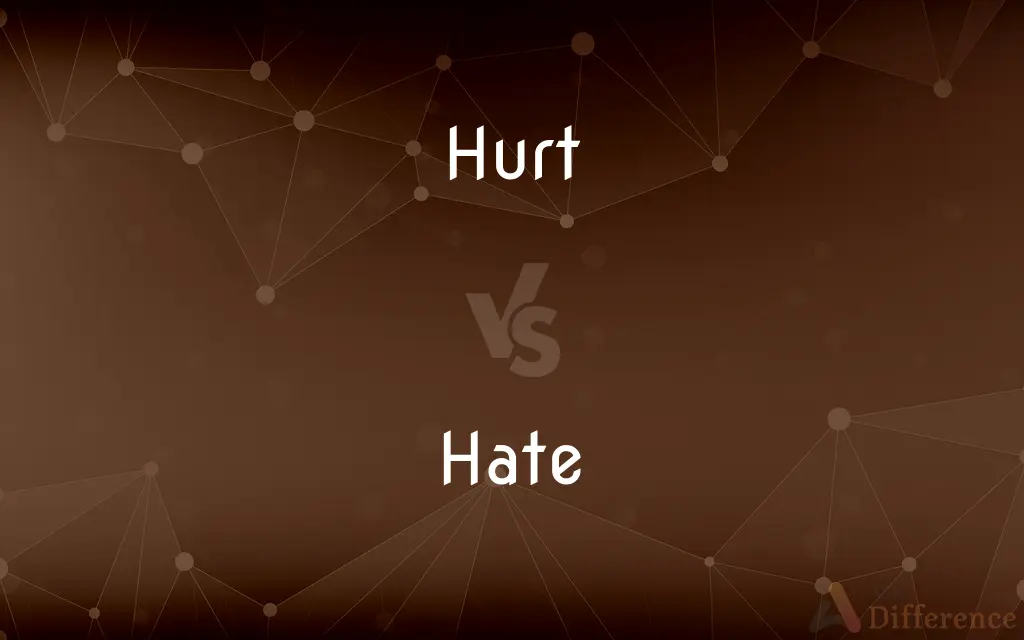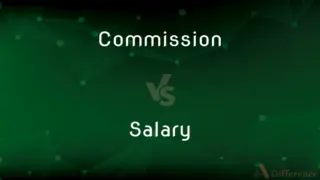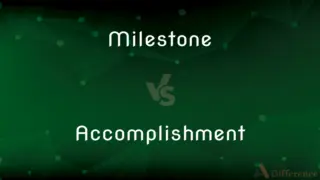Hurt vs. Hate — What's the Difference?
Edited by Tayyaba Rehman — By Maham Liaqat — Updated on February 26, 2024
Hurt involves experiencing physical or emotional pain, while hate is a strong feeling of dislike or hostility towards someone or something.

Difference Between Hurt and Hate
Table of Contents
ADVERTISEMENT
Key Differences
Hurt is a multifaceted term that can refer to both physical pain, such as an injury, and emotional pain, such as feelings of sadness or betrayal. It is often a response to an external stimulus, like an action done by another person or a particular situation. Hate, on the other hand, is an intense emotion that encompasses deep dislike or aversion towards a person, object, or concept. It goes beyond the immediate reaction to pain or discomfort, embodying a more enduring state of animosity or hostility.
Hurt can be seen as a temporary state that might heal over time or be resolved through understanding and communication, while hate tends to be more enduring and can persist even in the absence of ongoing provocation. Hurt often elicits empathy and a desire to mend or heal, whereas hate can drive a wedge, fostering division and conflict.
The experience of being hurt can sometimes lead to feelings of hate, especially if the pain is perceived as intentionally inflicted or if it goes unacknowledged or unaddressed. However, not all feelings of hurt evolve into hate, and not all hate stems from personal hurt; hate can also arise from learned attitudes or biases against certain groups or ideas.
Understanding and addressing the causes of hurt can lead to reconciliation and healing, whereas overcoming hate often requires a deeper examination of one’s beliefs and prejudices, as well as efforts to foster empathy and understanding. Both emotions play significant roles in human relationships and societal dynamics, but their impacts and resolutions are markedly different.
Comparison Chart
Nature
A response to physical or emotional pain.
An intense emotion of dislike or hostility.
ADVERTISEMENT
Cause
Often caused by an external action or situation.
Can stem from personal experiences or learned attitudes.
Duration
Can be temporary or heal over time.
Tends to be more enduring and persistent.
Resolution
May be resolved through understanding and communication.
Requires examination of underlying beliefs and fostering empathy.
Impact on Relationships
Can lead to empathy and reconciliation.
Often fosters division and conflict.
Compare with Definitions
Hurt
Experiencing emotional pain from someone's actions.
She felt hurt when her friend forgot her birthday.
Hate
Feeling intense dislike for someone without understanding.
His hate for his rival was unfounded.
Hurt
Suffering physical pain due to injury.
He was hurt in a soccer game yesterday.
Hate
A strong emotional rejection of particular ideologies.
His hate for corruption drove his political career.
Hurt
Feeling betrayed or let down.
They were hurt by the lies told in confidence.
Hate
Holding a deep aversion to specific concepts or objects.
She developed a hate for injustice early on.
Hurt
A sense of sorrow or distress.
The harsh words left a deep hurt within her.
Hate
Persistent hostility towards a group or individual.
Their hate was fueled by years of misunderstanding.
Hurt
Reaction to loss or disappointment.
The rejection from his dream college hurt him deeply.
Hate
An enduring state of animosity.
The feud was kept alive by mutual hate.
Hurt
To be detrimental to; hinder or impair
The scandal hurt the candidate's chances for victory.
Hate
To feel strong dislike for or hostility toward
Rivals who hate each other.
Hurt
To cause mental or emotional suffering to; distress
The remark hurt his feelings.
Hate
To feel hatred.
Hurt
Mental suffering; anguish
Getting over the hurt of reading the letter.
Hate
Intense animosity or dislike; hatred.
Hurt
To cause (somebody) emotional pain.
He was deeply hurt he hadn’t been invited.
The insult hurt.
Hate
Hatred.
He gave me a look filled with pure hate.
Hurt
To be painful.
Does your leg still hurt? / It is starting to feel better.
Hate
(Internet slang) Negative feedback, abusive behaviour.
There was a lot of hate in the comments on my vlog about Justin Bieber from his fans.
Hurt
An emotional or psychological humiliation or bad experience.
How to overcome old hurts of the past
Hate
To have a great aversion to, with a strong desire that evil should befall the person toward whom the feeling is directed; to dislike intensely; to detest; as, to hate one's enemies; to hate hypocrisy.
Whosoever hateth his brother is a murderer.
Hurt
The act of damaging something or someone
Hate
To be very unwilling; followed by an infinitive, or a substantive clause with that; as, to hate to get into debt; to hate that anything should be wasted.
I hate that he should linger here.
Hurt
Cause emotional anguish or make miserable;
It pains me to see my children not being taught well in school
Hate
To love less, relatively.
Hurt
Hurt the feelings of;
She hurt me when she did not include me among her guests
This remark really bruised me ego
Hate
The emotion of hate; a feeling of dislike so strong that it demands action
Hurt
Suffering from physical injury especially that suffered in battle;
Nursing his wounded arm
Ambulances...for the hurt men and women
Common Curiosities
Is it normal to feel hate?
Feeling hate is a human emotion but recognizing and addressing its roots is important for personal growth and societal harmony.
Can love turn into hate?
Intense emotions like love can turn into hate if feelings of betrayal or harm are involved.
Does expressing hurt help reduce it?
Yes, sharing feelings of hurt can aid in healing and prevent misunderstandings.
How can hurt be healed?
Through empathy, communication, self-care, and sometimes professional help.
Are hurt and hate related to mental health?
Both can impact mental health, and addressing them is important for emotional well-being.
Can societal influences contribute to hate?
Yes, societal attitudes, media, and culture can play significant roles in fostering hate.
Do hurt feelings always lead to hate?
Not always; people react differently, and many factors influence whether hurt transitions into hate.
What role does empathy play in overcoming hate?
Empathy allows individuals to understand and connect with others' feelings, reducing animosity.
Is hurt always caused by someone else?
Not necessarily; hurt can also result from personal failures, accidents, or natural events.
Can hate exist without hurt?
Yes, hate can arise from biases or prejudices unrelated to personal pain.
Can hate be justified?
While emotions are valid, understanding and challenging the reasons behind hate is crucial for personal and societal growth.
Is there a positive aspect to feeling hurt or hate?
These emotions can be catalysts for personal reflection, growth, and change if approached constructively.
How can one overcome hate?
By examining its causes, practicing empathy, and engaging in open dialogue.
How do hurt and hate affect relationships?
Hurt can lead to reconciliation if addressed, while hate often causes long-term damage and estrangement.
Is it possible to forgive without forgetting the hurt?
Forgiveness is possible, but it doesn’t necessarily mean forgetting the pain; it means choosing to move beyond it.
Share Your Discovery

Previous Comparison
Commission vs. Salary
Next Comparison
Milestone vs. AccomplishmentAuthor Spotlight
Written by
Maham LiaqatEdited by
Tayyaba RehmanTayyaba Rehman is a distinguished writer, currently serving as a primary contributor to askdifference.com. As a researcher in semantics and etymology, Tayyaba's passion for the complexity of languages and their distinctions has found a perfect home on the platform. Tayyaba delves into the intricacies of language, distinguishing between commonly confused words and phrases, thereby providing clarity for readers worldwide.
















































